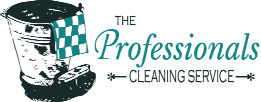Young children spend a lot of their time in school. Those whose parents work long hours might even have to spend extra hours in daycare afterward. Understandably, many parents scrutinize the cleanliness and sanitization policies in their children’s kindergarten schools and daycare centers.
Reasons To Invest in a Professional School Cleaning Service
Schools and childcare businesses are responsible for maintaining clean, safe, and healthy environments where children can learn and play without any risk of catching contagious diseases. But today, paying for professional daycare and preschool cleaning services is more necessary than a luxury.
Consider the benefits of paying for a professional school cleaning service:
- Thorough cleaning indoors and outdoors, if you wish.
- Professional cleaners use equipment (e.g., industrial mist sprayers, UV vacuum cleaners) that may not be readily available in the market or are too expensive for your school or business to buy and maintain.
- They also use hospital-grade, bacteria- and virus-killing cleaning products.
- Regular cleaning minimizes the risk of the children and staff getting sick from germs and viral pathogens.
- Regular cleaning lowers the risk of COVID-19 transmission in your school or daycare.
- Children will have an environment conducive to learning and enjoyment.
Seeing a school or establishment’s commitment to keeping their surroundings clean and sanitized will earn parents’ trust and confidence. Therefore, a school cleaning service can positively impact student and customer retention, the institution’s public image, and revenues.
Common Areas That Need Regular Cleaning
Preschoolers typically require a large space to move around, play, learn, and explore. They get hold of anything and everything, from crayons to dirt on the bottoms of their shoes. It’s easy to see why regular cleaning is necessary for preschools and daycare centers.
To help you keep track of these dirt-prone surfaces and rooms, here’s a checklist of the common areas that need regular cleaning:
Entrance Hall
The front door is a high-touch area prone to bacteria and viruses because of the sheer number of hands that touch it daily. In addition, in light of the COVID-19 pandemic, one must assume that every parent, student, or staff who enters the building is a potential carrier of pathogens regardless of whether they drove, rode public transportation, or walked from their residence nearby.
Classroom or Main Playroom
The classroom or playroom is where children tend to spend the majority of their time while in school or daycare, so it is the number one room that needs regular cleaning and sanitizing. Bearing in mind that the classroom contains countless objects and surfaces that children touch and hold – desktops, the floor, pencils, art materials, books, shelves, their classmates’ hands, toys, etc. – there is a high risk of contact with bacteria and germs if the place isn’t regularly cleaned.
Lockers and Coat Closet
Many daycare centers have a coat closet where children are taught to hang their coats or put on shoes. Parents and guardians also enter this room when it’s time for pickup. As such, the coat closet is one area with high daily foot traffic.
The same goes for the locker area (the equivalent in most daycares is open shelving with cubbies where children leave their bags and lunchboxes). Again, it’s a high-traffic, high-touch area for toddlers and adults alike and, therefore, needs regular disinfecting and cleaning.
Cafeteria
Despite the budding independence of many toddlers who want to show that they can eat on their own, they are still prone to dropping bits of food on the table and floor. Young tots transitioning from a sippy cup to a glass still tend to spill their drink, too. The eating areas often end up becoming messy as a result. Since bacteria proliferate where there’s water and organic matter, it’s crucial to clean up immediately after the kids eat.
Bathrooms
Anyone who regularly cleans their bathrooms at home can handle a daycare comfort room. School bathrooms require more thorough cleaning. Many young children and adults use them, and they also serve as a place for learning public bathroom etiquette for kids.
It’s best to entrust bathroom cleaning to janitorial staff, and to ensure the toilets are germ-free, professional cleaners offering preschool cleaning can regularly come for thorough disinfection.
Sleeping Area
If your daycare enforces nap time, you might have a designated sleeping area for the children. The room must be spotless, clean, and free of airborne allergens since they could be staying here sleeping for about an hour. Regular cleaning and air filtering solutions are ideal in this room, especially if you also care for infants who need frequent naps.
When Should You Call a Preschool Cleaning Service?
Many daycare staff take charge of cleaning these common areas. If the center is in a serviced building, the in-house custodial staff can take over. Schools, meanwhile, have in-house and contractual janitorial staff who keep these areas clean. Unfortunately, not all custodial service crews are trained or certified to sanitize preschool classrooms and playrooms.
Young children can be just as vulnerable to exposure to harsh cleaning agents as germs and pathogens. As a result, they might experience adverse reactions like dizziness, headache, or skin and eye irritation. To avoid these undesirable outcomes, consider working with a cleaning company specializing in preschools and daycare facilities.
Enlisting a professional school cleaning service ensures the health and safety of the children and the staff taking care of them.
Contact The Professionals Cleaning Service today to book school cleaning services you can trust.

